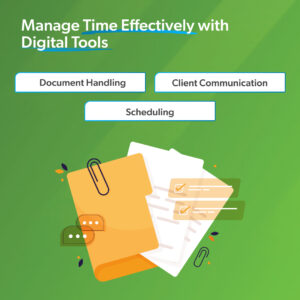
Real estate professionals often juggle multiple responsibilities—handling client needs, managing transactions, meeting deadlines, and staying on top of market trends—all of which can lead to high levels of stress. However, there are effective strategies to help manage that stress and maintain a balanced, productive workflow. From prioritizing self-care and setting clear boundaries, to optimizing organization and time management, realtors can take proactive steps to reduce daily pressure and focus on what matters most: closing deals quickly.
How to Relieve Stress as a Real Estate Agent or Broker
Stress is a common challenge for real estate agents and brokers, with many tasks to juggle and deadlines to meet. Finding ways to manage this stress is essential for maintaining productivity and well-being. Simple strategies, such as staying organized, setting clear priorities, and using helpful tools, can make a big difference. By making small adjustments to your routine and managing your workload efficiently, you can reduce stress and create a more balanced, manageable workflow.
Manage Time Effectively with Digital Tools
Time management is crucial for real estate professionals, and digital tools can make all the difference. By using a real estate transaction management platform, agents and brokers can streamline tasks like document handling, client communication, and scheduling. These tools help reduce manual work, keep everything organized, and free up time to focus on client relationships and growing your business.
Prioritize Tasks with Automation
Automation tools can help real estate professionals prioritize tasks by handling repetitive activities, such as sending follow-up emails or managing appointment reminders. By automating these tasks, you can focus on high-priority work like closing deals and building client relationships, all while staying organized and reducing stress.
Use Transaction Management Software
Transaction management software streamlines the entire process, from contract creation to closing. By centralizing documents, tracking deadlines, and facilitating communication, these transaction management tools for real estate help agents and brokers stay on top of every detail, reducing the risk of errors and ensuring smoother transactions for both clients and professionals.
Set Boundaries with Notifications
Managing notifications is essential for setting boundaries in a demanding real estate career. Using digital tools that allow you to customize notifications ensures you’re alerted to urgent matters while minimizing distractions. This helps you stay focused on important tasks without feeling overwhelmed by constant interruptions.
Delegate Tasks
Delegating tasks becomes easier with digital platforms designed for real estate teams. Whether it’s assigning paperwork to an assistant or coordinating showings, delegation allows you to distribute responsibilities efficiently. By sharing the workload, you can focus on higher-level tasks and reduce the stress of handling everything yourself.
Track Progress with Digital Checklists
Digital checklists help real estate professionals stay on top of their tasks and track their progress throughout a transaction. Whether it’s for a single deal or multiple listings, checklists ensure that no step is missed. Having everything outlined in one place makes the process smoother and more manageable.
Reduce Paperwork with Digital Signatures
Digital signature tools, like one in a real estate transaction management system, allow clients to sign contracts electronically, saving time and eliminating the need for physical paperwork. This speeds up the process, reduces errors, and makes transactions more efficient, letting you focus on other aspects of the deal rather than chasing down signatures.
Streamline Client Communication
Effective communication is vital in real estate, and keeping track of multiple conversations can be overwhelming. Streamlining this process can help make communication more efficient and organized. With the right tools and systems in place, real estate professionals can save time, stay on top of important conversations, and ensure consistent, timely interactions with clients. This approach leads to smoother communication and helps strengthen client relationships.
Automate Client Updates
Automating client updates with a real estate transaction management platform ensures your clients stay informed throughout the process. These tools can automatically send status updates, reminders, and notifications, saving you time while keeping clients in the loop. This maintains trust and reduces the need for constant manual follow-up.
Handle Client Issues with Transparency Tools
Transparency tools allow real estate professionals to share real-time updates on transactions, giving clients clear insight into the progress. By offering access to documents, timelines, and status reports, you address concerns before they escalate, building trust and fostering a smoother, more transparent experience for both you and your clients.
Keep Communication Centralized in One Platform
Using a real estate transaction management platform to centralize communication keeps all messages, documents, and updates in one place. This streamlines conversations, reduces the chance of missed details, and allows you to respond more efficiently. With everything organized, you can maintain smooth, consistent communication throughout the transaction, improving the overall experience for both you and your clients.
Use Templates for Common Responses
Real estate transaction management platforms often include custom email or message templates for common responses, such as updates, reminders, and confirmations. Using these templates saves time while ensuring consistent and professional communication. It allows you to focus on more personalized client interactions without getting bogged down in repetitive tasks.
Stay Organized with Transaction Management Platforms
Transaction management platforms help real estate agents and brokers stay organized by centralizing all key elements of the transaction process. From document management to scheduling and communication, these platforms keep everything in one place, making it easier to track progress, meet deadlines, and avoid errors. With everything streamlined and dozens of helpful features, you can focus on serving clients effectively and efficiently.
Use Custom Checklists for Every Transaction
Transaction management platforms allow real estate professionals to create custom checklists for every transaction. These checklists ensure that no important steps are missed, from listing agreements to closing. By organizing tasks in a clear, easy-to-follow format, you can stay on track and manage each deal efficiently, reducing stress and preventing oversights.
Implement Document Storage Features
With document storage features, real estate transaction management platforms allow you to keep all important paperwork in one secure location. From contracts to disclosures, you can easily access, share, and manage documents at any time. This not only reduces clutter but also ensures that all necessary files are organized and readily available throughout the transaction.

Streamline Task Assignments
Transaction management platforms make it easy to streamline task assignments, allowing you to delegate responsibilities to team members efficiently. Whether it’s assigning paperwork to an assistant or scheduling property inspections, this type of software ensures that every task is clearly allocated and tracked. This helps maintain accountability and keeps the transaction moving smoothly.
Track Deadlines and Milestones Automatically
Transaction management platforms offer automatic tracking of deadlines and milestones, helping you stay organized throughout the transaction process. These systems send real-time alerts for important dates, such as inspection and closing deadlines, ensuring that critical tasks are completed on time. By providing a clear overview of the transaction timeline, these platforms reduce the risk of delays, improve efficiency, and help you manage multiple deals simultaneously with greater ease.
Reduce Manual Work with Automation
Transaction management platforms reduce manual work by automating routine tasks such as sending reminders, generating documents, and tracking progress. This automation frees up time for real estate professionals to focus on higher-value tasks like client interaction and closing deals, all while minimizing the risk of human error and streamlining the workflow.
Gain Peace of Mind with Real-Time Updates
Real-time updates from transaction management platforms provide peace of mind by keeping you informed of any changes or progress. Whether it’s new documents, status changes, or upcoming deadlines, these tools make sure you’re always in the loop. This ensures you can address issues quickly, respond promptly to clients, and maintain full control of the transaction process.
Schedule a Demo of Our Real Estate Transaction Management Platform
Discover how our real estate transaction platform can streamline processes, keep you organized, and reduce manual tasks. With features like automated updates, centralized communication, document storage, and task management, your transactions will become smoother and more efficient.
If you’d like to experience the full potential of our real estate transaction management platform, contact us to schedule a personalized demo. Demos are available to brokers and association executives looking to onboard 10+ agents, while individual agents and brokers with fewer than ten agents have access to live webinars. During the demo, you’ll see how these tools can simplify your daily operations and improve client collaboration. If you’re part of a team looking to optimize your workflow, schedule your demo today to explore how our platform can help you stay on top of every deal.




